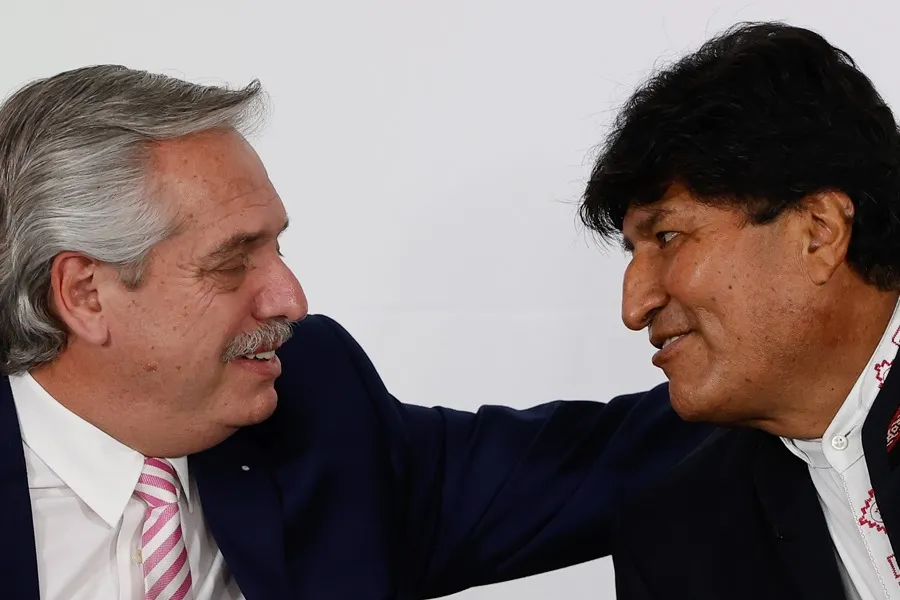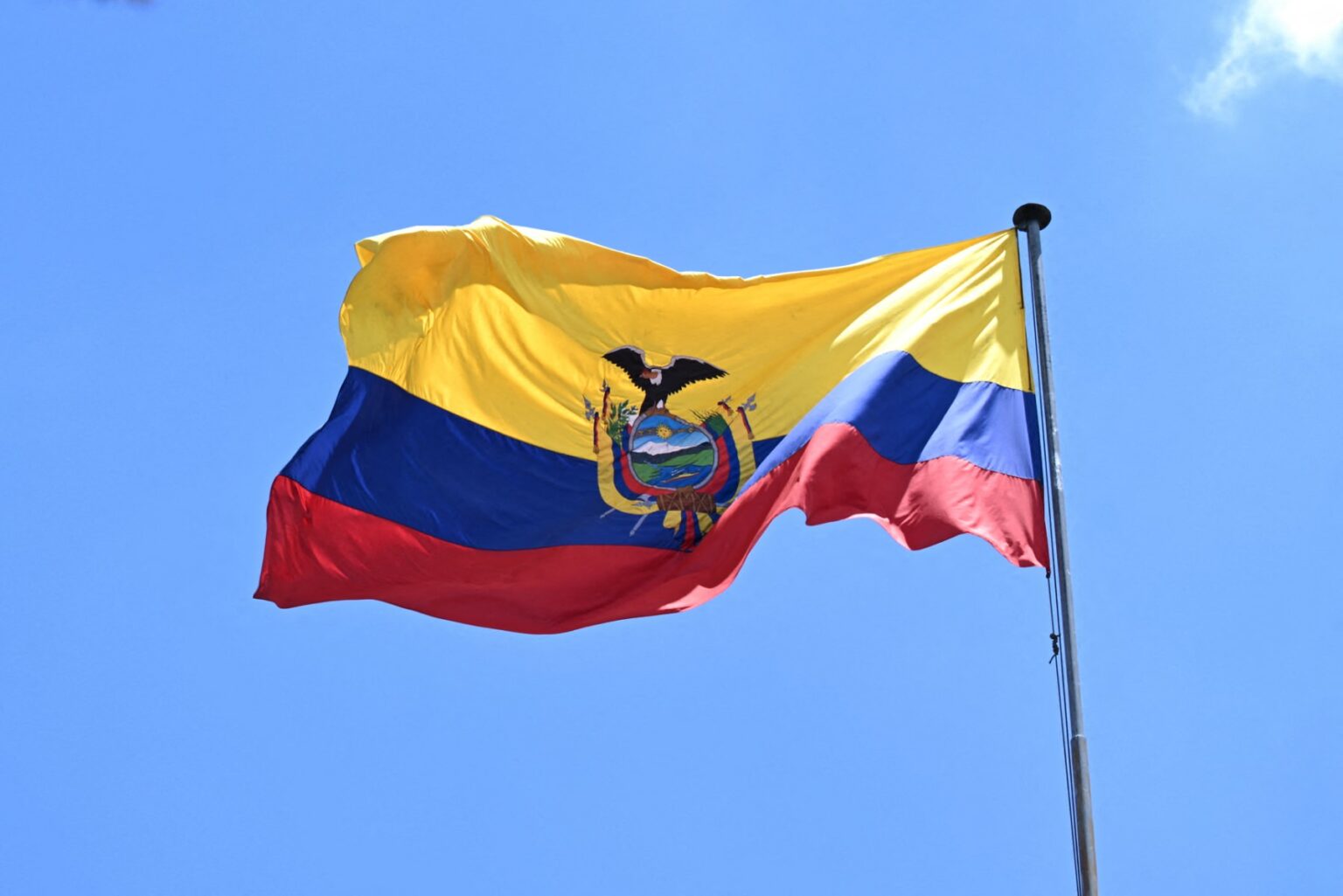International
Former Presidents Alberto Fernández and Evo Morales lead the electoral mission in Mexico

Former presidents Alberto Fernández, from Argentina, and Evo Morales, from Bolivia, lead the electoral observation mission for the Mexican elections this Sunday, June 2, of the Puebla Group, a laboratory of ideas of the Latin American left.
This was announced by the organization through a statement, where it also highlighted the presence of Spanish deputy Gerardo Pisarello, as well as Argentine researcher Silvina Romano.
“The entourage will be led by former Argentine president Alberto Fernández; former Bolivian president Evo Morales; former Chilean presidential candidate Marco Enríquez-Ominami, and former Secretary of Climate Change and Argentine Mercosur parliamentarian Cecilia Nicolini,” the text explained.
In addition, the former president of the Upper House of Bolivia Adriana Salvatierra and the former Minister of Foreign Affairs of Ecuador Ricardo Patiño, among other personalities, will be part of the observation mission, which arrived in Mexico on Thursday.
This entourage is part of the more than 23,000 national and international observers who will be present during election day, as announced on Wednesday by the president of the National Electoral Institute (INE), Guadalupe Taddei.
“The participation of national observers and foreign visitors in the elections on June 2 not only guarantees the transparency and integrity of the electoral process, but also strengthens our democracy,” he celebrated.
Sunday’s elections will be the largest in the history of Mexico, since more than 97 million people are called to the polls to renew, at the federal level alone, more than 20,000 positions, including the Presidency of the Republic, the 500 seats in the Chamber of Deputies and the 128 seats in the Senate.
At the regional level, Mexico City, the states of Chiapas (south), Guanajuato (center), Jalisco (west), Morelos (center), Puebla (center), Tabasco (south), Veracruz (south) and Yucatán (south) will renew the heads of their Governorships and, all municipalities, their agencies.
These elections will also go down in history as the most violent, with at least 30 candidates murdered and more than 200 political homicides, while the opposition denounces that organized crime puts votes at risk in almost 30% of the territory.
“During the stay, we will have the important mission of being able to observe the electoral process and, in this way, guarantee the transparency and freedom of the Mexican people,” the statement concluded.
International
Colombia to Send High-Level Delegation to Ecuador to Ease Trade Tensions

Colombia’s Ministry of Foreign Affairs confirmed on Friday that, at the instruction of President Gustavo Petro, a high-level delegation will travel to Ecuador in an effort to normalize bilateral relations, which have deteriorated following the imposition of reciprocal tariffs.
“In line with Colombia’s policy of good neighborliness and the spirit of cooperation and integration that guides its foreign policy,” the Foreign Ministry said in a statement, adding that the delegation will be led by Foreign Minister Rosa Villavicencio and Defense Minister Pedro Sánchez.
“Following instructions from the Presidency of the Republic, and as has been publicly reiterated, the Colombian delegation expects to reaffirm Colombia’s offer of support to the Republic of Ecuador to strengthen control over phenomena stemming from transnational organized crime,” the statement said.
The Foreign Ministry noted that the delegation will attend the meeting with a full willingness to engage in dialogue and to seek concrete solutions to the unilateral measures that have affected the longstanding relationship between the two neighboring countries.
Trade tensions between Ecuador and Colombia escalated on January 21, when Ecuadorian President Daniel Noboaimposed a 30% tariff on Colombian products, citing a lack of cooperation in anti-drug efforts. Colombia responded with similar measures and the suspension of energy exports, while Ecuador increased transportation costs for Colombian crude oil.
Business associations in both countries have warned that the dispute is harming both economies and have called on the governments to resolve their differences through dialogue.
International
Super Bowl Halftime Show Puts Bad Bunny—and Immigration Politics—Back in the Spotlight

The long-standing argument that sports and politics should not mix may be put to the test on Sunday during the Super Bowl halftime show, which will be headlined by Puerto Rican superstar Bad Bunny, a choice that has sparked backlash from segments of the U.S. right wing.
Just one week after his headline-making appearance at the Grammy Awards—where he sharply criticized the United States’ anti-immigration policies—Bad Bunny will once again take center stage on the global spotlight with his performance at the NFL final in Santa Clara, California.
Beyond the expectations surrounding the show itself, speculation has grown over whether the artist could again use the platform to protest policies associated with the administration of former President Donald Trump, in front of an audience expected to exceed 120 million viewers in the United States alone.
In fact, one of the most popular Super Bowl prop bets this year revolves around whether the Puerto Rican singer will deliver a direct message against ICE (U.S. Immigration and Customs Enforcement), similar to the one he delivered at the Grammys last Sunday.
While few expect Bad Bunny to repeat such a pointed statement, the mere speculation highlights the delicate balance the NFL must manage during the most-watched broadcast of the year.
The world’s most powerful sports league has drawn criticism from the MAGA movement since announcing in September that Bad Bunny would headline a halftime show largely performed in Spanish.
Trump himself declined to attend the matchup between the New England Patriots and the Seattle Seahawks, despite having made history last year as the first sitting U.S. president to attend a Super Bowl. He described the musical lineup—which also includes outspoken critics such as Green Day—as “a terrible choice” that would “sow hatred.” In response, his supporters have organized an alternative event dubbed the “All-American Halftime Show,” featuring like-minded artists such as Kid Rock.
International
Venezuela Debates Broad Amnesty Law Covering 27 Years of Chavismo

Venezuela’s Parliament began debating on Thursday a sweeping amnesty bill that would cover the 27 years of Chavismo in power, while explicitly excluding serious human rights violations and crimes against humanity.
The proposed legislation, titled the “Amnesty Law for Democratic Coexistence,” was introduced by interim President Delcy Rodríguez, who assumed power following the capture of Nicolás Maduro during a U.S. military operation.
The legislative session was convened for Thursday afternoon, with lawmakers holding an initial discussion focused on the general principles of the bill. This phase precedes a consultation process with civil society, after which the proposal will move to a final debate examining each article individually.
According to a draft of the bill obtained by AFP, the amnesty would apply to individuals accused of crimes such as “treason,” “terrorism,” and “incitement to hatred,” charges that were frequently brought against political prisoners over the past decades. The scope also includes offenses ranging from acts of rebellion to punishments imposed for social media posts or messages sent through private messaging services.
The bill’s explanatory text emphasizes reconciliation, stating that it seeks to move away from “vengeance, retaliation, and hatred” in favor of “opening a path toward reconciliation.”
However, the proposal explicitly excludes from its benefits crimes such as “serious human rights violations, crimes against humanity, war crimes, intentional homicide, corruption, and drug trafficking.”
These exclusions, the text notes, are based on strict compliance with the Venezuelan Constitution, which already prohibits granting amnesties or pardons for such offenses.
-

 International4 days ago
International4 days agoEpstein Denies Being ‘the Devil’ in Newly Released Video Interview
-

 International4 days ago
International4 days agoSpain Seeks to Ban Social Media Access for Children Under 16
-

 International3 days ago
International3 days agoDelcy Rodríguez Takes Control of Chavismo as Venezuela Enters a U.S.-Supervised Transition
-

 International4 days ago
International4 days agoPetro Resumes Extraditions, Sends Top Criminal to U.S. Before White House Talks
-

 International4 days ago
International4 days agoMexico to Send Humanitarian Aid to Cuba Amid U.S. Threats Over Oil Shipments
-

 International3 days ago
International3 days agoHRW Warns Trump’s Influence Has Weakened Human Rights in Latin America
-

 International4 days ago
International4 days agoMexico Arrests Suspect in Shooting of Sinaloa Lawmakers
-

 International4 days ago
International4 days agoHypothermia Linked to Most Deaths During New York’s Recent Cold Spell
-

 Central America2 days ago
Central America2 days agoPanama Will Not Be Threatened, President Says Amid Rising Tensions With China
-

 International2 days ago
International2 days agoDíaz-Canel Calls for Talks With Washington Without Pressure as U.S. Tightens Oil Sanctions
-

 International1 day ago
International1 day agoColombia to Send High-Level Delegation to Ecuador to Ease Trade Tensions
-

 International2 days ago
International2 days agoVenezuela Debates Broad Amnesty Law Covering 27 Years of Chavismo
-

 Central America4 days ago
Central America4 days agoLaura Fernández Says She Will ‘Never’ Allow Authoritarianism in Costa Rica
-

 Central America2 days ago
Central America2 days agoBukele’s Approval Rating Climbs to 91.9% in El Salvador, Survey Shows
-

 International4 days ago
International4 days agoNFL Investigating Emails Linking Giants Executive to Jeffrey Epstein
-

 International1 day ago
International1 day agoSuper Bowl Halftime Show Puts Bad Bunny—and Immigration Politics—Back in the Spotlight


























